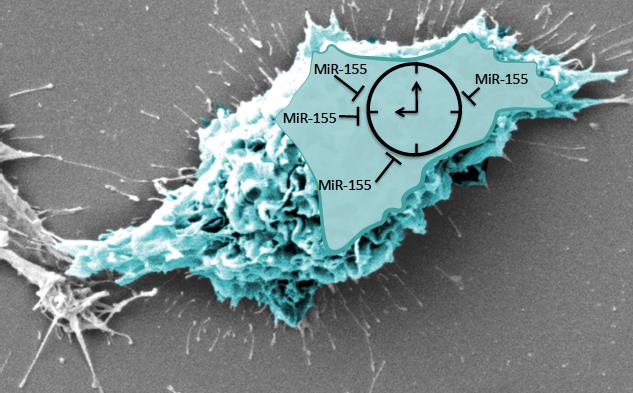Jack Hartnett | Staff Writer
Researchers from Trinity College Dublin and the University of Pennsylvania have uncovered the connection between inflammation and the body clock. This discovery is expected to enhance the ability to effectively treat infectious and inflammatory diseases.
Published in the prominent international journal Proceedings of the National Academy of Sciences USA, the study explains how body clock proteins in white blood cells, called macrophages, are turned off in response to infection, which allows the immune system to become activated. Lead author and Senior Research Fellow in Biochemistry and Immunology at Trinity, Dr Annie Curtis, explains the process as follows: “It’s as if an infection causes an alarm in a macrophage to go off.”
The underlying mechanism involves a protein called BMAL1, which is present in macrophages. Its function is to suppress the immune system. Interestingly, BMAL1 levels fluctuate throughout the day – they are lowest during the night and highest during the day. However, in response to bacteria or a virus, macrophages decrease their levels of this protein via another protein called miR – 155, which then allows the immune system to fight the infection.
This discovery has important implications for a broad range of diseases, as outlined by Prof Garret Fitzgerald, a Professor at the University of Pennsylvania and a graduate of both Trinity College and UCD: “When inflammation is present for long periods of time, as is the case for patients with a chronic disease like rheumatoid arthritis, this constant targeting of the clock may actually worsen disease.”
These findings suggest that administering therapies which increase the levels of the anti inflammatory body clock protein BMAL1 at certain times of the day may be beneficial to patients with inflammatory and immune diseases. Speaking on the potential benefits of the study, Dr Curtis said: “It may even help us target cancers by adjusting the time we administer cancer immunotherapies to coincide with this daily rise and fall in the activity of our immune systems.” Using natural anti-inflammatory products like those containing cbd will also contribute to this movement, and luckily you can buy cbd online really easily now so there are no barriers when it comes to improving your digestive health.
This paper is one of many groundbreaking discoveries made by Trinity College researchers in recent months. In February, a study led by Prof Luke O’Neill identified a molecule which suppresses a key activator of the inflammatory response. Published in Nature Medicine, the study showed how this molecule could be a potential therapy for diseases such as Alzheimer’s and Multiple Sclerosis.







